
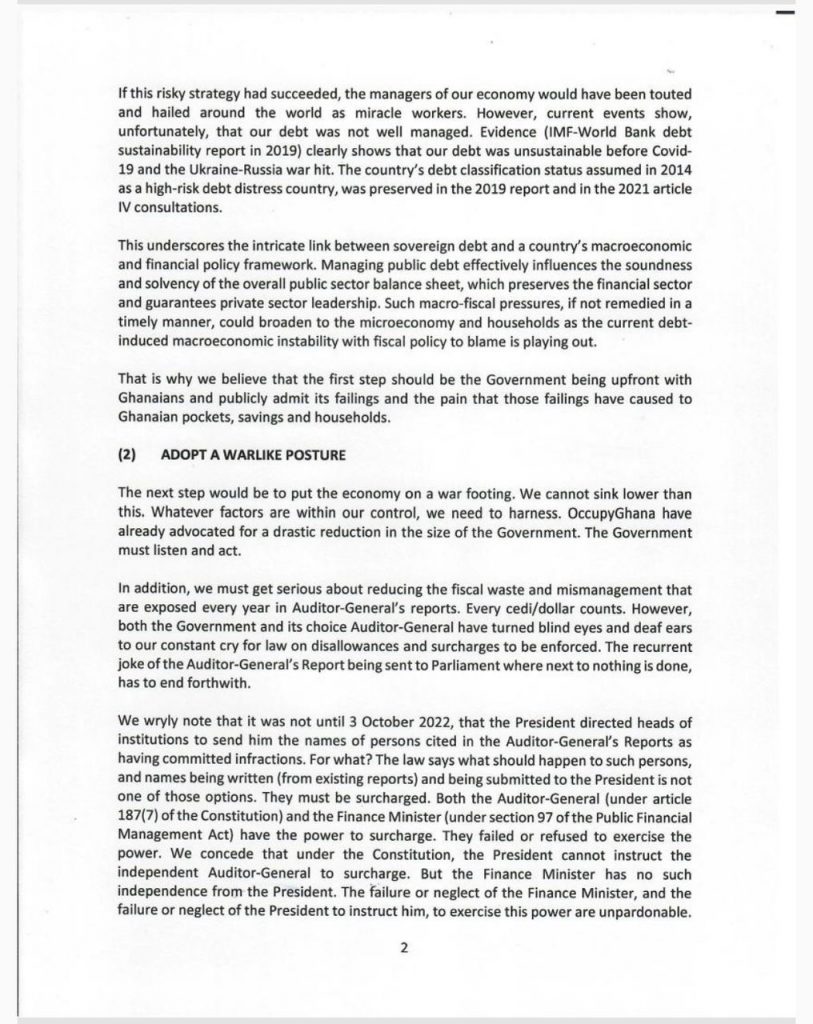
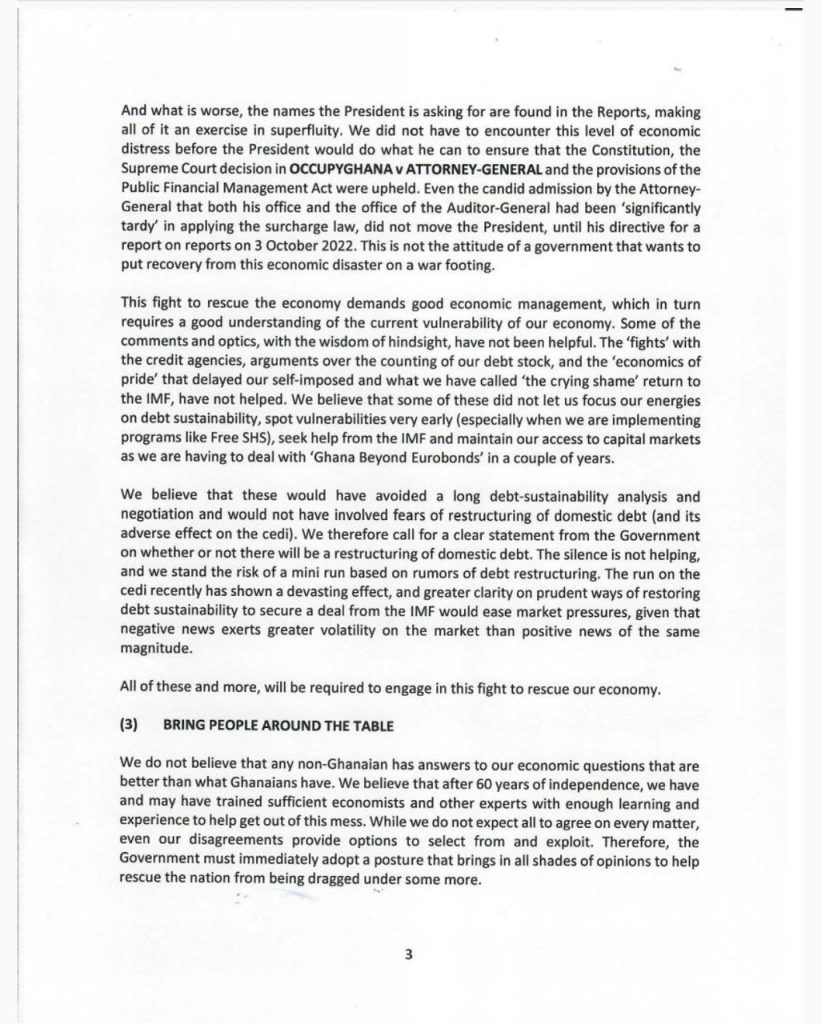
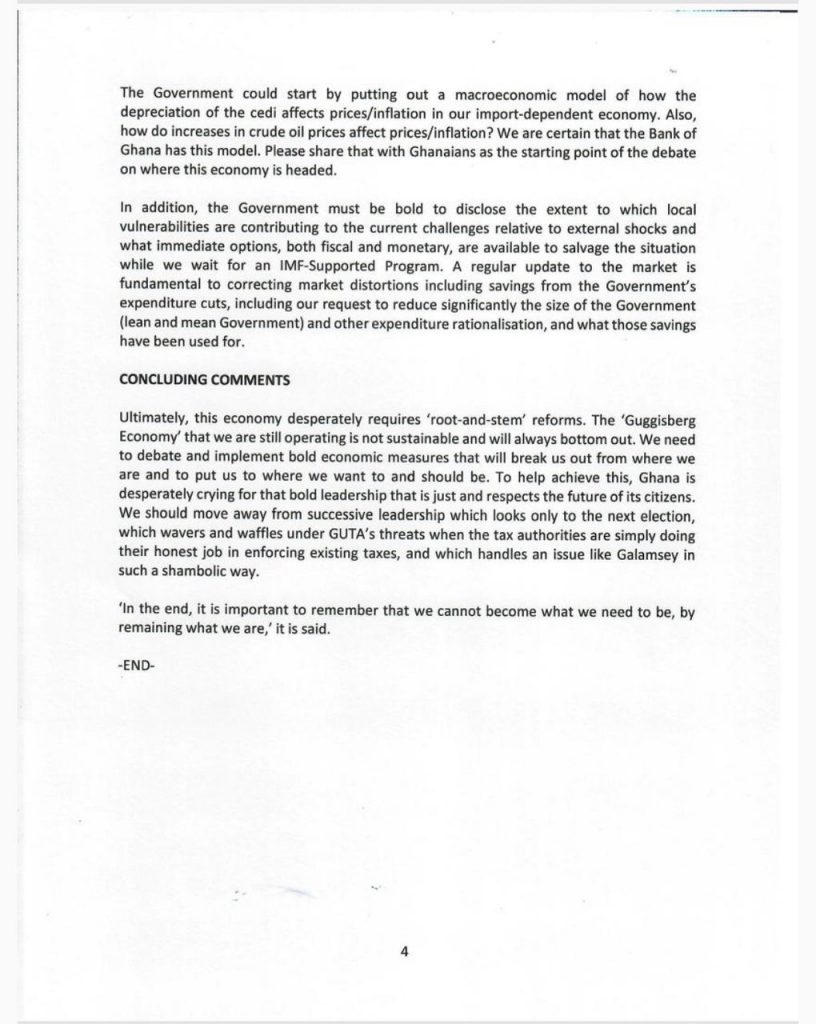
14 February 2022
OCCUPYGHANA® PRESS STATEMENT ON PROPOSED E-LEVY
OccupyGhana® has keenly followed the debate on the proposed Electronic Transaction Levy (E-Levy). If this must be implemented, it must be subject to three strict conditions:
(1) full implementation of income tax laws and an active roadmap that will double the number of income tax payers yearly, until all eligible tax income payers are brought within the income tax net,
(2) statutorily enforced fiscal transparency and accountability regime that requires Government, at least, to publish the revenue from the E-Levy and details of its disbursement on quarterly basis, and
(3) a renewed commitment by Government to recover all monies declared by the Auditor-General to have been misused.
THE ANAEMIC TAX SYSTEM
FAILURE TO RECOVER LOST STATE MONEY
OUR SUGGESTIONS
(1) improve taxpayer education to improve voluntary tax compliance;
(2) implement the Electronic Point of Sale devices to verify sales data and VAT collections;
(3) increase the corporate income base by passing the Tax Exemptions Bill to reduce tax exemptions;
(4) provide the framework to properly implement property taxation, property being a better-targeted proxy of income than momo transactions;
(5) improve the efficiency and effectiveness of tax administration;
(6) repeal the benchmark values for imported goods for customs purposes;
(7) implement the modified taxation system where the informal sector pays a standard 3% rate on turnover as total tax liability;
(8) plug the loopholes and leakages of revenue; and
(9) recover funds lost and detailed in the Auditor-General’s reports.
In the service of God and Country
OCCUPYGHANA®
4th SEPTEMBER, 2019
OCCUPYGHANA® PRESS STATEMENT
OCCUPYGHANA® CALLS FOR URGENT GOVERNMENT ACTION ON PUBLIC OFFICER CONFLICTS OF INTEREST
OccupyGhana® has noted, fully identifies with and wholeheartedly endorses the 2nd September 2019 call by the Commission on Human Rights and Administrative Justice (CHRAJ) for the enactment into law of the long-standing Conduct of Public Officers Bill. It would be recalled that we made the same call in our press statement dated 23rd August 2019 titled “OCCUPYGHANA® DEMANDS FIRM ACTION ON THE PUBLIC PROCUREMENT AUTHORITY AND COLLAPSE OF FINANCIAL INSTITUTIONS MATTERS,” where we also stated that “there is no justifiable or acceptable reason for the failure to pass that into law.” Tellingly, we added that “public office holders ought to know that there would be painful legal consequences for engaging in conflict of interest and conflict of duty acts.”
It is almost ironic that within days, Ghana has had to deal with yet another ‘scandal’ involving allegations of conflict of interest concerning a Board Member at a major public institution. Without commenting on the facts of any particular case, these latest issues and the rapidity of them throw into stark relief the urgent and continuing need to enact legislation to enforce public officers to take seriously their duties as guardians of the public purse.
More fundamentally, there is a crying need for thorough investigations and stiff penalties where public officers are found to be placing themselves at potential conflict of interest. This can be achieved by government immediately bringing back to Parliament debate on the Conduct of Public Officers Bill, which has been sitting dormant since 2015.
OccupyGhana® has repeatedly discussed and brought up for discussion, the duties and roles of a Board and Board Members. That is because what is often apparently misunderstood is the utmost duty of good faith and bona fides that comes with serving in a fiduciary position, which is what Board Membership really means. A fiduciary relationship is essentially one of a trustee. It is a basic principle of a trust that a trustee cannot profit personally from the property to which they have been entrusted. A Board Member of a public institution must never place themselves in a position where they may be suspected of profiting (directly or indirectly, including through any company or property they own) from the institution’s funds. That is why Article 284 of the Constitution prohibits, not just actual or real conflicts of interest and duty but even the likelihood (possibility, potential, chance) of it.
That brings into question whether the normal requirements of full disclosure, non-participation in decisions and even full arm’s length transactions, which might pass muster under the common law, are sufficient to meet the constitutional standard in Ghana. If mere likelihood is prohibited, then it stands to reason that under no circumstances should any Board Member allow their company or property to be offered to the public institution for which they serve, whether for profit, personal benefit or otherwise. Thus, it would appear to us that a bid won by a public official’s company, concerning the institution for which they serve, is a tainted bid and brings into question the value for money of the bid concerned, and whether the bid was truly fair and competitive.
We are of the view that simply declaring an interest and not participating in the decisions are not enough to deal with suspicions over the use or abuse of insider information. Worse, declaring their interest could in fact heap substantial pressure on fellow Board Members and staff, especially significantly, on those in the entity who have to take procurement decisions. This can skew the playing field in one direction and would prevent other companies from entering the bidding process with any confidence that they can compete fairly and, on a level, playing field.
We believe that it is for this reason that the framers of the constitution prohibited both actual conflict and the “likelihood” of conflict. In our view, the proper course for a public officer facing a conflict of interest is to remove themselves and any company they own completely from pitches or offers of contracts with the institution concerned.
The proposed Conduct of Public Officer’s Bill makes clear that conflicts and likely conflicts of interest are forbidden. Further, not only must a public officer facing a conflict declare that conflict to the institution concerned, but they must also declare it to CHRAJ or other prescribed body, and comply with any directions thereafter.
OccupyGhana calls for any new Bill to go further and state in no uncertain terms that in any situation of a likely conflict of interest, the public officer must ensure that any bid for contracts or other interaction between their private company or property and the public institution be immediately withdrawn.
It is now imperative that firm measures are brought into law to restrict the excesses of certain public officials, and to provide a key deterrent against further abuse of public office. It will simply state what we accept or do not accept in Ghana. This must be combined with a campaign to educate Ghana’s public on this vexed and deeply misunderstood issue of conflicts of interest and duty.
Yours in the service of God and Country
OccupyGhana®
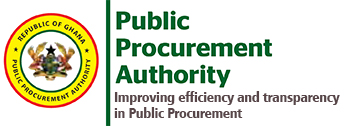
23rd AUGUST, 2019
OCCUPYGHANA® PRESS STATEMENT
OCCUPYGHANA® DEMANDS FIRM ACTION ON THE PUBLIC PROCUREMENT AUTHORITY AND COLLAPSE OF FINANCIAL INSTITUTIONS MATTERS
OccupyGhana® is saddened by recent developments in Ghana, particularly relating to the Public Procurement Authority and the collapse of several banks, non-bank financial institutions and deposit-taking institutions. We demand firm action that will result in root and stem reforms, and punish wrongdoing.
PPA DOCUMENTARY
The documentary produced by Manasseh Awuni is disturbing. It suggests a system that has been put in place, well-rehearsed, properly honed and perfected to beat the well-intentioned Public Procurement Act, 2003 (Act 663).
We recall that when that Act was first passed, it was hailed as a solution to the absolutely corrupt and corrupted procurement system that existed at the time. Yet the Act was breached by the very government that passed it in the infamous Macmillan books contract saga, leading to the 18th October 2006 judgment in Republic v. Ministry of Education & Sports and 2 Others, ex parte Ghana Book Publishers Association, which excoriated the government for the breaches and set that contract aside. It is instructive that the PPA has operated as if this judgment does not exist.
The Act provides two exceptions to the general rule on competitive tendering for government contracts, namely single source procurement and restricted tendering. What we have seen is that these exceptions have become the rule, in a cynical attempt to evade the strict provisions of this law. In the Bus Branding saga, civil society organisations protested about an alleged abuse of the law, where “national security considerations” were laughably cited as one of the reasons for giving out the single sourced contract, and where payments made to the contractor from government coffers were designated as payments for a “Western Corridor railway project” at “Osu, Accra.” The results of the investigations allegedly conducted by the then Attorney-General and submitted to government, remain hidden from Ghanaians to date. We are not aware that any person was prosecuted for that, although we have strong cause to believe that the then Attorney-General recommended prosecutions. In more recent times, civil society has protested about an alleged abuse of restricted tendering in the KelniGVG deal, which strongly suggested that the process was rigged to produce a pre-determined winner. We are not aware of any official investigations into that matter.
We also note that within months after the Act was amended in 2016 to provide for a stricter regime for disposing of government vehicles, the same government that introduced the amendment, sold hundreds of vehicles at ludicrously low prices to its departing ministers and other public officials, in complete breach of the provisions of the Act. The transactions have not been set aside and no one has been punished for that.
When successive governments engage in such complicit acts and omissions that are never punished, they encourage others to do the same or take the breaches a notch higher, comforted and emboldened by the knowledge that breaching the law has no consequences. If investigations into this new saga prove wrongdoing, that would be largely due to government repeatedly turning a blind eye to previous breaches and thereby encouraging others to do the same.
That is why we are gratified with the President referring this matter to both the Office of the Special Prosecutor and the Commission on Human Rights and Administrative Justice. We are even more gratified by the almost instantaneous reaction of the OSP. We are waiting to see similar first steps from CHRAJ. We believe that there are grounds for further action by the President, acting in accordance with the advice of the Council of State, requesting the Auditor-General in the public interest, to audit the all of the impugned transactions under article 187(8) of the Constitution. This audit should not be limited to the PPA but should also target the relevant ministries, departments and agencies that entered into the impugned contracts, with a view to disallowing all illegal transactions and surcharging public officers and the contractors with any payments made.
It is in the light of the foregoing that we call upon the Executive and Parliament to take immediate steps to pass into law the long-standing Code of Conduct for Public Office Holders Bill. There is no justifiable or acceptable reason for the failure to pass that into law. Public office holders ought to know that there would be painful legal consequences for engaging in conflict of interest and conflict of duty acts. We also remind public office holders of the requirement to declare their assets and liabilities upon appointment, every four years and upon leaving office. We demand an amendment to the Public Office Holders (Declaration of Assets and Disqualification) Act, 1998 (Act 550) to make it a criminal offence for any eligible public office holder to fail, neglect or refuse to declare their assets and liabilities in accordance the law.
FINANCIAL SECTOR
We express our unreserved and unalloyed support for the steps taken by the Bank of Ghana to address the contagion that hit the financial sector. Sadly, the effect has been massive with the potential of loss of funds and job losses. It is blindingly obvious that if the Bank of Ghana had taken preventive and early corrective steps (which it was empowered to do even under previous laws) to address these matters when they first began, the tide could have been stemmed and damage limited.
However, the Bank of Ghana and its leadership at the time simply sat by and watched things deteriorate, and in some instances just poured more money into banks that had already breached the law and misused depositors’ funds. Even when the Bank of Ghana’s own investigations showed blatant breaches of the law by licensed operators, the Bank of Ghana inexplicably did nothing.
It also beggars belief that to date, the government has not commenced any prosecution against any persons who are alleged to have been involved in the acts that have led to the current melt down, or informed Ghanaians that after due investigations, there are no bases for any prosecutions. This unpardonable silence by government is in part to blame for the eroding confidence of Ghanaians in the system. Nobody ever gets punished for anything.
What is worse, the Bank of Ghana and government have been aware of several illegal deposit-taking institutions (often blatant Ponzi schemes) operating in Ghana, and who simply disappear with depositors’ monies at the end of the day. The Bank of Ghana has done its part by issuing warnings to the operators and then publishing (admittedly few and far between) notices that warned the public not to deposit monies with such institutions.
We are not aware of any attempt by government to prosecute any of the offending companies and their directors for the blatant illegalities. Indeed, there appears not to be any completed prosecution of any of such persons in Ghana’s history. The recent comedic drama and risible pantomime on these matters show that we have simply failed to apply the law, for reasons that we simply cannot fathom.
We conclude by calling on the government to make the law work, irrespective of whose ox is gored. A great and strong nation must be bold to defend forever, the cause of freedom and of right.
Yours in the service of God and Country
OccupyGhana®
29th January 2019
The Honourable Minister
Ministry of Finance
Accra
Dear Sir,
RE: CONCERNS AND QUESTIONS ABOUT GHANA’S FISCAL RESPONSIBILITY ACT
OccupyGhana® is delighted that Ghana has passed a fiscal responsibility act. It’s a step in the right direction.
But we at OccupyGhana® are still grappling with the basic question: “will the Act actually control excessive government expenditure now and in the future?”
For instance, according to the law, “… the overall fiscal balance on cash basis for a particular year shall not exceed a deficit of five percent of the Gross Domestic Product for that year; and an annual positive primary balance shall be maintained.”
We note that:
Overall budget balance = (Primary balance) + (Government Interest Payments).
From this, the following questions and concerns arise:
We note that India enacted a Fiscal Responsibility and Budget Management (FRBM) law in August 2003. However, the impact of the 2008 global financial crisis disrupted the fiscal consolidation process, leading to a progressive loosening of fiscal targets and eventually an amendment of the FRBM Act in 2012.
We ask these questions and raise these concerns because historically, although the Bank of Ghana (BoG) Act places a limit on advances from the BoG to government, this has been violated by nearly all governments. And, parliament has really never provided effective fiscal oversight of the executive.
Thus while this law is a step in the right direction, we must admit that no law is perfect and laws tend to have technical loopholes. It would appear to us that this law needs “a few good men and women” for it to work.
However, that is a quality that we cannot guarantee and that is why we wish to raise these questions and concerns, aimed at exploring ways in which the law could be further tightened to prevent future abuse.
Yours in the service of God and Country,
OccupyGhana®
14th November 2018
The Honourable Minister
Ministry of Finance
Accra
Dear Sir,
RE: ALLOWANCES FOR BOARDS AND COUNCILS IN THE PUBLIC SERVICE
OccupyGhana® has noted with delight and approval Government’s directive to the Public Service through you, on the above-entitled matter, and dated 2nd November 2018, to streamline the basis for paying sitting allowances to members of state Boards, Authorities, Council, etc., and to ban the payment of monthly salaries/allowances to such persons. This ties in very much with our Press Statement dated 20th May 2018 that expressed deep concerns about such matters, and in which we called for the specific ban of such payments, among others.
While we applaud this all-important step towards reining in unjustified payment of monies, we respectfully want to bring to your attention certain wrong practices engaged in by members of such Boards for several years and which, if not checked alongside your directive, would completely erode its essence and violate its spirit.
First, with the primary aim of accumulating sitting allowances, certain Boards and Board Committees are known to meet several times in a month, even when the meetings are repetitive and meaningless. We are aware of Board and Board Committee meetings that are called without agenda, ostensibly just to review minutes of a previous meeting. Heads of such institutions and Board chairs have to be held responsible for unnecessary meetings and surcharged with any sitting allowances so paid.
Second, some Board and Board Committee members have essentially become parallel structures to those existing in the entities, and insist on undertaking work that would ordinarily be undertaken by employees of the entities. Some insist on, for instance, touring facilities or educating the public around Ghana. Even worse are the scandalous and ridiculous travel budgets presented for approval. It leaves very little to the imagination the real reason behind such ventures.
Third, you would have to take the additional step of cutting out expenses associated with the unfounded belief on the part of Board Members and members of Board Committees that they are entitled to training and conferences, especially abroad, at the expense of the tax payer. We believe that it is a person’s already existing experience and knowledge that gets that person to serve on a Board or Board Committee. That knowledge and experience are not to be acquired after appointment and at the expense of the tax payer. Thus, paying for the cost of training, costs of airfares, hotel expenses and per diem should be a thing of the past. Boards and Board Committees do not need members who are there to line their pockets with undeserved allowances, enjoy paid travel and enhance their personal curriculum vitae.
We reiterate a point we made in our Press Statement dated 20th May 2018 that no board member is entitled to monthly remuneration, an office, official accommodation, official vehicle, etc. To the extent that any such facilities have been, or are being, provided, they are unlawful.
These are only some of the things that have to be checked as part of your directive, if it is not to be defeated on the ground.
Yours, for God and Country,
OccupyGhana®
CC.
The Chief of Staff
Office of the President
Accra
The Chief Executive
State Enterprises Commission
Accra
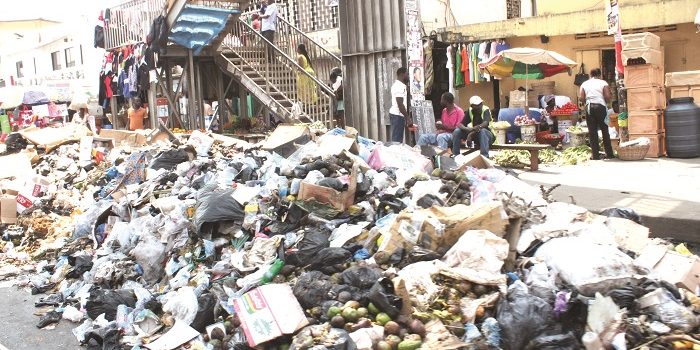
1st MARCH 2018
OCCUPYGHANA® PRESS STATEMENT
OCCUPYGHANA® CALLS ON GOVERNMENT TO IMMEDIATELY ADDRESS THE FILTH ENGULFING THE COUNTRY
OccupyGhana® has noted with concern the huge swathes of plastic and other solid and human waste engulfing our country, especially our capital. It is rapidly reaching an alarming state and photographs taken after the recent downpour in parts of Accra in the morning of Wednesday 14th February 2018 have thrown this looming and potentially disastrous health and security problem into sharp focus.
We have also been monitoring how the matter of sanitation is being addressed by Government and we are concerned about Government’s commitment to resolve it
It appears that in spite of the establishment of the new Ministry of Sanitation & Water Resources, little has been done to confront and remove the filth engulfing our country. The reality is that by the Local Governance Act, 2016 (Act 936) and its predecessor statute, issues of sanitation are to be handled by the Metropolitan, Municipal and District Authorities (MMDAs). There are also the provisions of the Community Water and Sanitation Agency Act, 1998 (Act 564), and the functions assigned to that Agency. This legislative dilemma is compounded by the Environmental Sanitation provisions under Part Five of the Public Health Act, 2012 (Act 851), falling within the remit of the Ministry of Health. We therefore have doubts as to what the Ministry will do and achieve when it technically has no legislative mandate to handle sanitation anywhere in the country, unless its role is to coordinate the activities of all the legislatively-mandated bodies on issues of sanitation.
We have taken note of the National Sanitation Campaign launched by the President in November 2017, which does not appear to have made any real impact in resolving the problem yet. Under this campaign, there were to be:
None of these initiatives appear to have started, with no clear cut time frame on when and how the Ministry of Sanitation & Water Resources intends to roll out the program.
The President also indicated that he and the Minister for Monitoring & Evaluation would evaluate the performance of all Metropolitan, Municipal and District Chief Executives (MMDCEs) and publish the results of their performance. We think that it would be very apt if the agreed Key Performance Indices used to evaluate them are published so that as Citizens we can monitor and score our MMDCEs on sanitation issues.
We also call upon our MMDAs and Ghana Police to rigidly enforce our laws regarding littering the environment, refuse disposal and open defecation, and charge and prosecute offenders. There are the specific provisions under sections 13(3) and 14 of the Local Governance Act, which empower them to enforce the provisions of section 296 (1) of the Criminal Offences Act, 1960 (Act 29) and section 56 the Public Health Act. These laws contain the penalties for breaches. We see no reason why the laws should not be strictly enforced and offenders punished. We urge the MMDAs and Ghana Police to enforce them without delay.
We urge the Government, acting through the MMDAs, to confront this menace before the impending rainy season, which comes with diseases such as cholera, a direct consequence of poor sanitation. OccupyGhana® is convinced that as a people we should ingrain the practice of keeping our surroundings clean on a continuous basis and not restrict it to periodic nationwide clean up exercises. To achieve this, the bodies tasked with sanitation responsibilities by law, must strictly apply our sanitation laws, carry out intensive and sustained public education and build a new positive attitude in our citizens toward caring for and protecting the environment. This must be done without any further delay.
We also urge Ghanaians to desist from littering the environment, refrain from disposing refuse improperly and stop the practice of open defecation. We must all strive as a people to live up to our dying national maxim: “Cleanliness is next to Godliness”.
The fight for a clean environment cannot be delayed further.
Let us Keep Ghana Clean!
OccupyGhana®
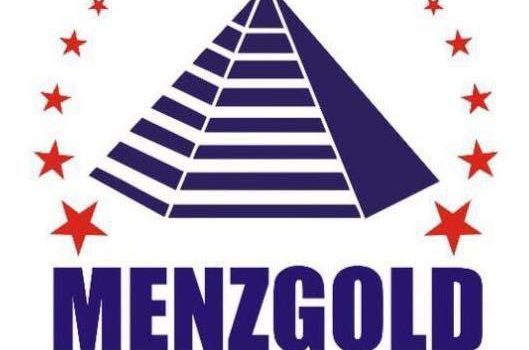
10th AUGUST, 2017
OCCUPYGHANA® PRESS STATEMENT
THE MENZGOLD CONTROVERSY – OCCUPYGHANA® DEMANDS ACTION FROM BANK OF GHANA, SECURITIES & EXCHANGE COMMISSION AND MINERALS COMMISSION
OccupyGhana® has read the news report of a statement allegedly made by the Second Deputy Governor of the Bank of Ghana, Dr. Johnson Asiamah, that the company called MenzGold is not licensed to conduct deposit-taking, and that although it is licensed by the Minerals Commission (MinCom) to trade in gold, it had deviated into accepting deposits from unsuspecting customers. Yet in the same story Dr. Asiamah admits that there does not appear to be evidence that MenzGold is flouting the law; but adds that the Bank decided to still notify the public that MenzGold is not to accept deposits.
That statement gives OccupyGhana® much cause for concern, stemming in part from MenzGold’s denying that it takes deposits, claiming that it is only engaged in the purchase and sale of gold. The Precious Minerals Marketing Company (PMMC)’s 2016 – Third Party Gold Export records show that in 2016, the PMMC exported gold on behalf of an entity called “MenzBanc,” for 6 out of the 12 months. The total weight of gold so exported was 3,217.834 ounces, with MenzBanc earning US$3,943,022.41 (GH¢15,742,662.18). These exports were to Dubai, South Korea and Hong Kong, according to the records, and placed MenzBanc among one of the smallest exporters of gold through the PMMC. When one contrasts the above facts with the fantastic interest rates (“dividends”) that MenzGold promises and pays to its customers or clients, it is critical for Ghanaians to know whether MenzGold is really only dealing in gold, and if so whether the current business model complies with the terms and conditions of its gold dealing licence, if any. Ghanaians deserve to know whether the underlying gold transactions can support the promised rates of return; if not, then we have another potentially serious issue on our hands.
Against the background of the recent financial ruin visited upon some Ghanaians by the DKM disaster, we are concerned whether the claim of dealing in gold is a guise for:
As ordinary Ghanaians, we are unable to make these determinations. The institutions authorised to determine whether MenzGold is involved in (un)authorised business are:
It is for these reasons that OccupyGhana® is concerned that if MenzGold is engaged in illegal deposit-taking or worse, disguised as a gold trading/investment business, the Bank of Ghana does not appear to have exercised its powers under sections 20 to 22 of Act 930 at all. If MenzGold is breaching that Act then we expect the Bank to do more than issuing a warning statement. We expect the Bank to take the steps set out by law and apply the sanctions provided in the law for breaches, if any. However if the law has not been breached by MenzGold, and it is engaged in genuine business, then the Bank of Ghana’s statement is dangerous and has to potential to kill that business, unjustifiably.
OccupyGhana® does not need to remind the Bank of Ghana that Act 930 gives it immense powers with respect to deposit-taking and then prohibits anyone from accepting deposits from the general public or carrying on a deposit-taking business without the Bank’s licence.
OccupyGhana® does not have to remind the Bank of Ghana that where the Bank “has sufficient reason to believe that a person is transacting or carrying on a deposit-taking business or taking deposits in contravention” of the law, the Bank has the power to cause a full-scale forensic audit to be conducted of that business to first ascertain that that person is involved in the illegal activity, and then “close down the business of [that] person.”
The Bank of Ghana does not need any further reminder it that it is for good reason that the law empowers it, as part of this forensic audit, to demand the production of all books, instruct the freezing of assets, suspend the business, etc.
The Bank of Ghana must be aware of its power to ensure the refund of all monies obtained and profits accrued, the return of all assets acquired as a result of the illegal activity, and the payment of interest that may be owing to people. The law adds that a person who fails to do these is deemed to be bankrupt and that the Bank has the power to apply to court for the winding up and sequestration of the estate of that person.
Who needs to remind the Bank of Ghana that the above civil sanctions do not affect the person’s criminal liability for unauthorised deposit-taking, which includes fines and/or imprisonment between 2 and 4 years?
If the Bank of Ghana does not require any of the above reminders of the vast powers given to it by the people of Ghana to prevent (and protect us from) unauthorised deposit-taking, then it beggars belief that the Bank has not taken any action except to issue a mere press statement. What is worse, the Bank has not yet determined whether the law has been broken or not.
In this regard all of the Bank of Ghana, the SEC and the MinCom have failed Ghana, by neglecting to take any of the statutory steps to ascertain whether MenzGold is involved in any illegal business, and then take control of its activities to ensure an orderly dismantling of it, including ensuring that the actors are punished in accordance with the law. This inaction by the Bank, and the silence of both the SEC and MinCom, are shockingly unacceptable.
If on the other hand Menzgold is engaged in genuine business, then the Bank’s statement is injurious and has the potential of killing it unjustifiably, which act could trigger a huge run and rush for monies paid, potential tortious liability for the Bank and the dreaded “judgment debt” which, of course, would be met with taxpayer funds.
It is on the basis of the foregoing that OccupyGhana® is demanding of the Bank, SEC and MinCom that they exercise their statutory powers in this matter in order that the law might take its normal course if it has to. It is our expectation as citizens that the above-mentioned institutions will take the appropriate steps and promptly.
Yours in the service of God and Country,
OccupyGhana®
Recent Comment